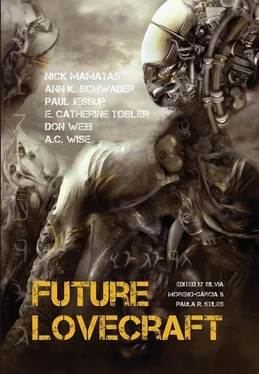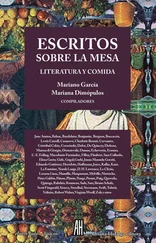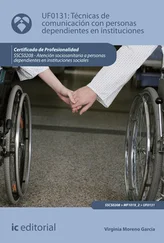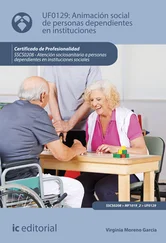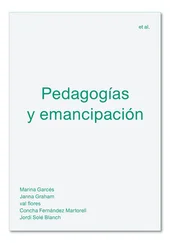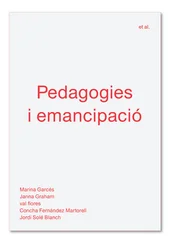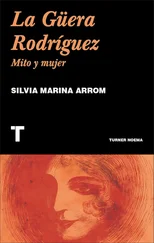It was when I was on my morning trek to Ruby’s, to grab some milk and get a sense of the day, that I first noticed the Welcome Lane well had healed. The shimmer and shift of it that I normally glimpsed out of the corner of my eye was gone. Cautiously, I moved closer to the site. Only concrete path and grass tufts and a forlorn wire fence. It made me uneasy. Were we living in some kind of boiling time soup, where wells bubbled and popped continuously? I had hoped for a bit more stability.
Ruby wasn’t about when I arrived at the shop, but this wasn’t unusual. She could be out the back having a breather, or taking a quick walk. She knew she could trust us to keep her up to date with what we took. I collected my supplies and was about to write out an IOU at the counter when I saw Ruby’s stockinged legs on the linoleum. It was such an incongruous sight that, at first, I didn’t understand what I was seeing. I moved around to the other side of the counter and there was the rest of Ruby, sprawled across the floor, a rich, red liquid pooled under her head. I bent down, took her wrist. No pulse. She looked like she had been there for some hours. The doorbell behind me rang. It was Malcolm, another long-term resident, ex cattle man.
“It’s Ruby,” I croaked. “She’s had a fall.”
Malcolm joined me, squatting down beside Ruby. “That’s no fall,” he stated. “That’s a bashing. See how the head’s all caved in? She’s been murdered.”
I called the police. Malcolm said he’d stay with Ruby till they arrived, which could be hours, as they were based a couple of hundred kilometres away. Then I hurried back to the house, feeling distinctly uneasy, what with the time well and now Ruby. Who on earth had done it?
I headed for the kitchen, following the bitter aroma of just boiled coffee. We loved our kitchen. It was huge, industrial-sized, built to accommodate vast vats of scone mix, mountains of mutton. We had nearly blown ourselves up with the stove when we first moved in, but we’d got the hang of it now. I relished the smoky flavour of our morning toast, the thick, oily coffee that stayed with me all day. I found Tamsin standing at the table, vigorously stirring a bowl of pikelet mix. She gave me one of her looks.
“What?” I said.
She shook her head, flicking the wooden spoon up so mix went all over the table.
“Milla reckons her shed’s been broken into. Her gun and ammunition’s been stolen.”
“Jesus,” I said, pulling up a chair and falling into it. I told her about Ruby.
“But it wasn’t a shooting. Malcolm said her head was bashed in.”
“Gotta be connected, though,” Tamsin said.
But who?
We knew there were some odd ones living around the place, people searching for absolute solitude, people who could not live within society for any number of reasons. Tamsin and I had always prided ourselves on our tolerance. Milla herself was a Satanist. Another resident, Jeff, had worked most his life in the abattoirs and carried his own, personal aura of tension around with him at all times. A little difference, after all, was no big deal. But how far do you go, how much do you tolerate, before it becomes dangerous?
Like any small community faced with a crisis, we gravitated to the pub. By about mid-afternoon, a dozen of us had arrived.
It felt calming at first, comforting to be with others, drinking and yarning in bar, a reminder that most of the world was ordinary and predictable and safe, and that talking about it usually helped. Although, after a while, it didn’t seem like such a good idea at all. Fear and alcohol are a terrible combination.
“We need to search every house,” Jeff stated firmly, his voice louder and louder. “That’s all there is to it. That way, we’ll know for sure who’s done it.”
“Now, let’s not get carried away, said Malcolm. “Could be someone who passed through.”
“Can’t be,” Jeff argued. “We haven’t heard a car in days.”
That was true enough, I had to admit.
“So, it’s gotta be one of us. We’ve got to search the houses.”
Jeff had started banging on the tabletop. He stood, leaning forward. I could see that things could very easily get out of hand.
“Hey, hey,” I said. “We’re not the enemies. We’re all worried. But it’s not for us to decide. It’s in the hands of the police. They’re at Ruby’s shop right now, working out what to do. We’ll hear soon enough. All we need to do is look after ourselves in the meantime. Lock up tight.”
Tamsin and I left for home soon after.
Life changed for a while. We lived behind locked doors. I didn’t take my usual walk down Sweetheart’s Way. And I kept a cricket bat beside the bed of a night. Not much use against a gun, I know, but somehow, the thought of having a gun in the house scared me even more.
“Is it worth it?” Tamsin asked. “All this uneasiness, this fear, just to own some property? It was supposed to be a beginning, but it doesn’t feel like that, anymore.”
I knew what she meant. I didn’t pick up a paintbrush for days, not able to see a future here, not sure where we were heading.
But we did settle. You can get used to anything, I found, even finding a dear old neighbour dead on the linoleum. You can’t live on high alert forever. It’s just not physically possible.
And it was a fine place, really. This part of the world felt ancient, prehistoric. Giant ferns, skittering marsupials, the air clear and fresh, the quiet addictive. Despite the time wells, I felt centred here. Much more than I ever had in the city. At least once a day, we’d go walking in that clear air. I’d had a lot of struggle and complication in my life, but this place was helping to give me some space between me and all that. We’d had a glitch but now, we were on our way again. It was senseless to lock ourselves away when we were surrounded by all of this.
It became our habit to take a morning walk together, a different route every time. We found trees that must have been a thousand years old, creeks full of jumping trout, old miners’ huts made of hessian and lime, still containing a bed and shelves and a bench full of dusty tins of food. And we found the skins. We smelled them before we saw them. Round a bend and there they were, a dozen or so rabbit skins hanging from the branches of a eucalypt, sinister flags twisting slowly with the breeze.
“What is it?” Tamsin whispered.
It felt threatening. It was clearly mental. Hell, it was both. Whoever had done this had some agenda I couldn’t even begin to grasp. That made it dangerous. “C’mon,” I said, “Let’s go.” Whatever it was, there was something wrong about it, a wrong feeling, a wrong sense. Just wrong.
Later, at the pub, Tamsin asked Malcolm about it.
“Sounds like someone’s camping around here, using old-time skills, things my grandad taught me. Only, why hang them up like that? They’d be flyblown within hours, ruined. No, when you think about it, it doesn’t make sense.”
We thought it might be witchcraft, but Milla said no, didn’t seem like anything she was familiar with. It set our teeth on edge, all of us, and we grew wary and afraid again. Tamsin and I began to talk about moving. We had no place to go, people like us didn’t have much choice, but it seemed clear we couldn’t stay here. There were too many things we didn’t understand about this place, too much dissonance going on for me, creating an almost unbearable tension. I could see it was the same for Tamsin. She wore a constant frown and a faraway expression, and held her body rigid as if she were becoming uncomfortable in her own skin. When we made love, she held on to me so tight it hurt, as if she were trying to stop from sinking, drowning. We kept close to home after that, only venturing out to get our supplies. We might as well have been living in some apartment in the middle of one of the cities, for all the countryside we saw. And we checked on each other constantly. If I hadn’t seen Tamsin for half an hour or so, I’d go wandering, searching all the rooms, make sure I’d placed her, that she was safe enough for the next little while.
Читать дальше
